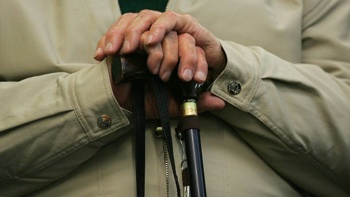

A registered nurse has admitted giving dementia patients in a rest home unprescribed drugs on her day off, after she claimed they were being abusive including one who was biting and hitting others.
Elisabeth Buckley admitted the charges of professional misconduct, including that she falsified another nurse's signature to prescribe the medication.
Buckley appeared before the Health Practitioners Disciplinary Tribunal on Wednesday after the charges were laid by a Professional Conduct Committee of the Nursing Council of New Zealand.
Buckley worked as a facility manager at an Auckland rest home for residents with dementia, between January 6, 2020 and March 16, 2020 when she resigned.
She was employed in response to a district health board audit which identified 29 unmet criteria and the need for the facility to be managed by a suitably qualified person.
Buckley was responsible for closing the unmet audit criteria, many of which related to inadequate documentation and systems.
An agreed summary of facts stated on Saturday, January 11, Buckley asked a healthcare assistant to give two patients Lorazepam, which was not prescribed.
When the assistant questioned the instructions, Buckley told her "I am the registered nurse", and that she had already advised the doctor.
Buckley personally administered Lorazepam to a third patient.
She also admitted falsifying the signature of the facility's registered nurse on a patient's dietary profile.
The tribunal was satisfied Buckley's actions amounted to professional misconduct.
Buckley gave evidence at a hearing held to determine the penalty she would face.
"I wish to acknowledge that I take full responsibility for my actions," she said.
"I recognise that my conduct was extremely unprofessional."
Buckley claimed the medication was given to the patients after she witnessed them showing signs of "sundowning" behaviour, which occurs in people with dementia who may become more confused, restless or insecure as the day progresses.
She said the patients had become verbally and physically abusive toward staff and residents.
One patient was throwing things at people and hitting and biting staff and other residents, she said.
Buckley, who was not rostered to work that day, claimed the patients had become incredibly distressed and agitated so she decided to give them the drugs out of concern.
"I accept that it was not appropriate for me to make this assessment."
Buckley, who suffers from anxiety and depression as well as ADHD, described her new role as stressful and admitted she may have been overly sensitive to what was happening.
"I was genuinely concerned and worried about the residents and I felt I needed to do something for them.
"I accept my actions were inappropriate and misplaced."
Buckley admitted copying the registered nurse's signature from an old dietary profile on to a new document, as required by the DHB audit but continued to deny it was intentional or that she had forged it.
Matthew McClelland QC, appearing for the PCC, challenged Buckley's claim, saying she had deliberately tried to copy the nurse's signature.
Buckley responded by saying she didn't remember signing the form.
"I do not remember trying to make one signature look like another signature."
McClelland submitted Buckley's conduct was a significant departure from accepted professional standards.
"It is malpractice and is conduct that brings discredit to the nursing profession."
He said aggravating factors including Buckley was acting outside of her scope of practice needed to be considered when deciding on a penalty.
While the conduct didn't warrant the cancellation of her registration or a period of suspension from practice, the PCC wanted Buckley to undertake and successfully complete a Nursing Council of New Zealand course of study relating to medication dispensing.
She must also disclose the tribunal decision to any employer before commencing work as a registered nurse for a period of 12 months and an order of censure should be imposed to express the tribunal's strong disapproval of, and significant concern regarding Buckley's conduct.
Belinda Johns, appearing for Buckley, submitted the offending was at the lower end and any penalty should be kept to a minimum.
While Buckley's actions had lowered the standards of the profession and undermined the public's confidence, they came from a place of honesty and good intent, Johns said.
Buckley was committed to the profession of nursing. She considered she still had a lot to offer and was seeking a second chance, Johns said.
It was accepted conditions would be imposed on the practising certificate of Buckley, who did not currently hold one.
The tribunal has retired to consider the penalty to be imposed on Buckley and is expected to conclude later today.
- by Leighton Keith, Open Justice
Take your Radio, Podcasts and Music with you









